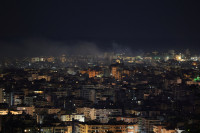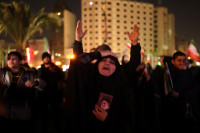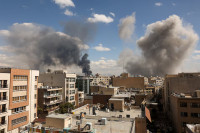World
Man dies after being turned down by 10 hospitals in South Korea; government to investigate
This is yet another case of an urgent care patient being turned down by multiple hospitals due to staff shortages from ongoing medical strikes.
The Korea Herald
The government said Thursday that a man in his 50s recently died due to delays in providing him with emergency medical care, in yet another case of an urgent care patient being turned down by multiple hospitals due to staff shortages from ongoing medical strikes.
According to the Ministry of Health and Welfare, emergency services in South Gyeongsang Province received a report at around 3:28 a.m. on September 6 that a man living in Yeoncho-myeon in Geoje city was suffering from abdominal pain and vomiting. The day before, he had visited a nearby emergency room and was examined by doctors, who could not find any significant problem.
The man was conscious when picked up by emergency medical workers, who requested his admission to 10 different hospitals in the nearby bigger cities of Changwon, Jinju and Busan. They all declined to treat the patient.
Even after he was admitted to a hospital in Geoje at around 4:46 a.m., he could not be operated on due to a staff shortage. He was finally treated at a hospital in Busan, where he was admitted at around 8:53 a.m., but he did not recover and died two days later.
The Health Ministry said it will have the regional governments investigate the details of the case, including the physical condition of the patient, measures taken by each medical institution, and the processes by which a hospital was chosen and he was transported to it.
The ministry said it will consider conducting its own investigation if necessary, and vowed to take proper measures if the probe reveals any problems.
South Korean hospitals have been suffering medical staff shortages due to a monthslong protest and walkout by doctors across the country in protest against the government’s plans to substantially increase admissions to medical schools.
The situation has sparked several cases of delayed treatments for emergency patients, leading to several deaths and the worsening of patients’ conditions.
-In association with Asia News Network.




 9.83°C Kathmandu
9.83°C Kathmandu















